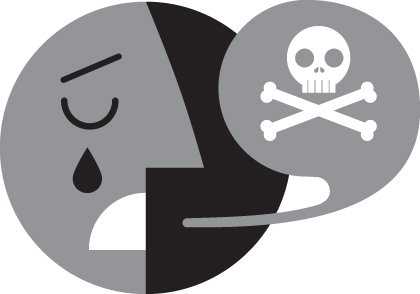Karen Nickel
Staff Reporter
Syria dominates the news lately. The nation waits to find out if it will be the target of limited military strikes from the United States, backed up (in words) by Stephen Harper.
The use of chemical weapons on Aug. 21 in Damascus pushed Obama across his ‘red line’ into considering military action against Syria.
The ongoing internal conflict and fears of U.S. attacks makes it hard to see hope in Syria but some George Brown College (GBC) students are trying to.
Sahel Zreik, a graduate in Marketing Management – Financial Services program at GBC came to Canada in 2010 from Lattakia, Syria. Part of his family remains there.
He is sceptical about America’s intervention in the conflict; ongoing since 2011. “The U.S. doesn’t want democracy in Syria, their own interests are the reason for their intervention,” said Zreik.
This thought is echoed by Hadi Mousattat, in his last term of Business Marketing at GBC. While his immediate family is abroad, he has extended family in Aleppo.
“The Americans would not be there for moral or ethical reasons, but for their own agenda,” said Mousattat. “If it was for the Syrian people a No Fly Zone would have helped them early in the conflict.”
Referring to the chemical allegations, Zreik says that he believes the chemical attacks in Damascus were from the Bashar Al Assad regime, “ I have no doubts. They have admitted they had the weapons. Why would the rebels bomb rebel held neighbourhoods? I have no reason to doubt it.”
Mousattat agrees, “Why would they (revolutionaries) ever target themselves? Those areas affected were very pro-Free Syrian Army. Why would they target locals who support them? It’s obvious the regime did it.”
UN inspectors took samples from the areas days after the alleged sarin gas attacks; their investigation is ongoing.
“People were involved in the uprisings taking place across the area during ‘Arab Spring’ in 2011, but from the beginning, in Latakia, it was strictly controlled and suppressed, with protesters being killed,” said Zreik.
“But everywhere there are activists who are organizing and taking care of residents as well as refugees’ basic survival needs, including children in need of medical care,” said Zreik. “People are organizing and helping people locally. That gives me hope, something I don‘t see being talked about in the media.”
Mousattat is struggling to see any hope for Syria. He has an audio engineering diploma and is a DJ and music producer. He visibly brightens when asked about music, it’s his passion.
But he returns to heavy thoughts about Syria. “I haven’t been doing anything, because of thinking and feeling so depressed about the situation. I talked to my grandmother in Aleppo, she said she has no running water, none.”
“I think there is no hope. Even an attack would do nothing if the regime is left in place. If no serious international help arrives, Syria will be left in the stone age as far as rebuilding the vast infrastructure that’s necessary. It can only be done by stopping the war inside Syria, but there is no call for that.”
Both men are cynical about the ‘Stop the War’ and ‘Hands off Syria’ rallies popping up after the U.S. threats. They wonder where the international community has been for the last two years.
Mousattat summed up his thinking, “Anti-war is anti-war, isn’t it?”


